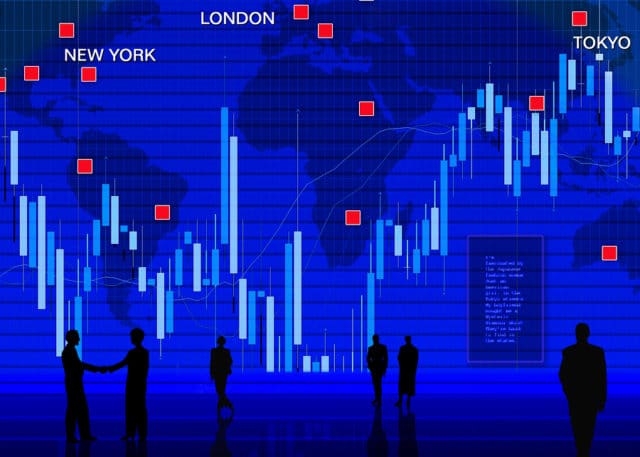Until he takes office in January, new powerhouse president Donald Trump won’t have the capacity to complete on his promises to scrap the Trans-Pacific Partnership, renegotiate the North American Free Trade Agreement, or punish Chinese imports. Indeed, even without him, protectionism is rising, and world exchange is abating.
Reacting to a clamor from neighborhood steelmakers, the European Union this year has rebuffed Chinese contenders for purportedly offering steel underneath cost. The EU has reported antidumping obligations as high as 81.1 percent on Chinese steel. Unhindered commerce must be reasonable, and not out of the question exchange can be free. In addition, somewhere in the range of 30 million European employments rely on upon unhindered commerce.
Around the globe, many organizations that gorged on simple credit after the worldwide budgetary emergency have overabundance limit and are attempting to discover purchasers, since monetary development in the U.S., Europe, and Japan is generally powerless, and China’s economy is cooling. The pie is developing all the more gradually, and that makes local makers more cautious about their share of it and all the more ready to battle when debilitated.
Intelligence boss Asia financial specialist Tom Orlik brings up that in the course of recent decades, customers and organizations have spent intensely on portable workstations, tablets, and cell phones, however in spite of endeavors by Apple and others to promote keen watches, there’s no new should have gadget to help worldwide exchange. Stagnant pay development in the West additionally drives government officials to show they comprehend voters’ stresses. Orlik proclaims that the weight develops for governments to assuage those voices by giving them the things they need and the things they need are exchange confinements.
The Obama organization in June raised U.S. levies on steel from China, India, Italy, South Korea, and Taiwan. In July, China denounced Japan, South Korea, and the EU of dumping electrical steel utilized as a part of generators and reported punishments of its own. India on Nov. 2 slapped antidumping obligations on Chinese steel imports.
Littler countries are occupied with their own exchange spats. Malaysia in May reported punishments on Chinese, Korean, and Vietnamese steel. Peru set antidumping obligations on imports of biodiesel from Argentina in October.
The controls come while worldwide business is sputtering. World exchange volume has grown somewhat more than 3 percent a year since 2012, the International Monetary Fund reported a month ago, not as much as a large portion of the normal development rate over the earlier three decades. Somewhere around 1985 and 2007, genuine exchange developed by and large twice as quick as worldwide [gross household product], though in the course of recent years, it has scarcely kept pace. Such drawn out languid development in exchange volumes with respect to monetary action has couple of points of reference amid the previous five decades.
In Singapore, which depends vigorously on exchange, GDP shrank an annualized 4.1 percent in the second from last quarter from the past three months. The city-state has one of the world’s greatest ports, yet dispatching holder development fell 8.7 percent in 2015 and 1.7 percent in 2016 through October.
China’s entrance into the WTO in 2001 set off a surge in speculation as organizations moved assembling to the terrain. That helped development in worldwide exchange, with Chinese processing plants bringing in more parts and trading finished items to the U.S. what’s more, different countries. China’s WTO section fundamentally reshaped the worldwide creation chain. Harrison Hu, boss Greater China financial analyst with Royal Bank of Scotland in Singapore, claimed this information. Today, more Chinese organizations can make parts themselves: Components and crude materials represented 52 percent of China’s imports in 2007, however that is currently 42 percent.
Under President Xi Jinping, the administration is attempting to direct the economy far from fare driven development, concentrating on household request. That will help China have more supportable development, yet for the time being it puts a damper on exchange. China’s fares for the initial 10 months of the year totaled $1.7 trillion, as per China’s General Administration of Customs, a 6.3 percent drop from a similar period in 2015. Imports were down 7.5 percent. China had an awesome run, yet it’s over.
In regards to Trump one of his major economic policies could very much so lead to a global recession. Trump made the facilitated commerce talk about one of the focal points of his battle subsequent to condemning China, Mexico, and Japan. He recommended putting a 45% tax on Chinese imports, said he would pronounce China a coin controller on his first day in office, proposed exhausting imports from Mexico, contended for “tearing up” exchange bargains, and called the Trans-Pacific Partnership, or TPP, “an assault of our nation.”










